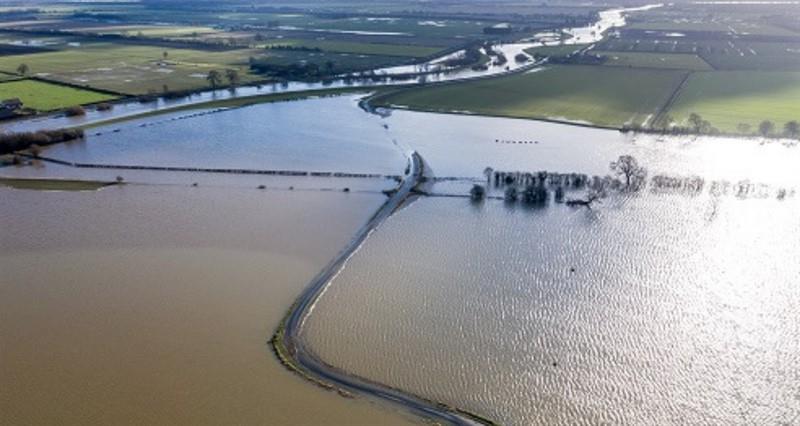According to provisional Met Office statistics, this also marks the UK's second warmest February with an average temperature in England of 7.5°C, topping the previous record of 7°C set in 1990.
Wales saw an average mean temperature of 6.9°C for the month, marginally ahead of 1998’s record of 6.8°C.
February also broke records elsewhere in the world.
The World Meteorological Organisation reported that parts of North and South America, northwest and southeast Africa, southeast and far eastern Asia, western Australia and Europe all saw record-breaking temperatures, either on a daily basis or for the whole of the month.
Global sea surface temperatures are also at a record high. However a large part of north-western Canada, central Asia and from southern central Siberia to south-eastern China witnessed exceptional cold spells during the last week of the month.
‘Shape of things to come’
February was also a wetter than average month, with southern parts of England seeing the wettest February since the series began in 1836.
Many parts of southern England recorded well over twice the average rainfall.
NFU President Tom Bradshaw said: “Since the end of last year, we have seen hundreds of farms across the country face the devastation of flooding and the huge financial stress and misery that brings.
“Some farms in Lincolnshire have been under water since last October and that is completely unacceptable.
“Climate change is one of our biggest challenges, and if the Met Office data for this winter is the shape of things to come, then it’s inevitable that storms will become more frequent and heavy rainfall will become more prevalent.”
“There needs to be political will to provide more funding to the Environment Agency, so it can deliver a proactive plan of management and re-investment.”
NFU President Tom Bradshaw
More than 50% of productive farmland is situated in low-lying areas.
“If we’re serious about our domestic food security and producing more here, then we have to maintain these river systems which have been neglected for decades,” Tom added.
“There needs to be political will to provide more funding to the Environment Agency, so it can deliver a proactive plan of management and re-investment in the watercourses and flood defences it is responsible for, to ensure British farmers and growers can continue producing climate-friendly food.”
‘Winters are getting warmer’
Other key highlights from the report include:
- East Anglia has had both its warmest and wettest February on record. It saw 106.4mm of rainfall across the month and had a mean temperature of 8.2°C.
- The persistent mild and wet weather which characterised February particularly in the south was true of winter overall. This winter is in the top 10 warmest and top 10 wettest for the UK.
- 445.8mm of rainfall fell, 29% more than the long-term average. The wettest areas have been across central and eastern England and Scotland.
- Another record was broken in January when Achfary in Scotland hit 19.9°C. This means that, since 2011, the UK has recorded its highest daily maximum temperature record for six of the 12 months of the year (January (2024), February (2019), July (2022), October (2011), November (2015), December (2019).
As Met Office Senior Scientist Mike Kendon observed, “winters are getting warmer, and they are also getting wetter”. As the atmosphere heats up, it can hold more moisture, around 7% more per 1°C of warming.
